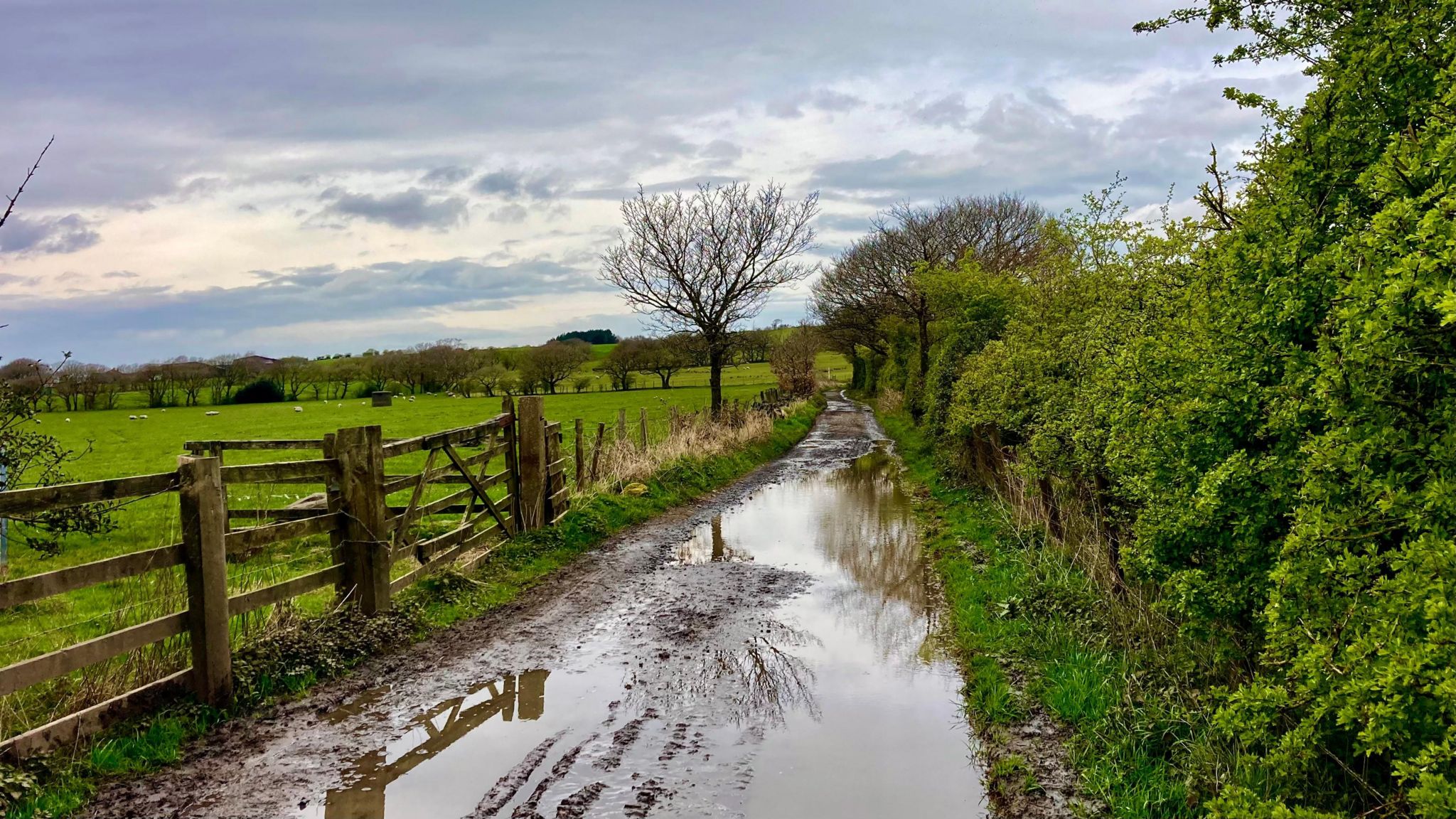Why is it raining so much?

April continues to be wet after some heavy rainfall over winter
- Published
It’s been really wet recently – but just how wet and why?
We had the eighth wettest winter since records began more than 150 years ago. The start of spring continued that theme with England and Wales having more than one and a half times their average March rainfall.
As well as being wet it has been mild. And globally it was the warmest March on record, the tenth record-breaking month in a row.
So what part does climate change play in our washout weather?
Winter stats from the Met Office show it was was warmer and wetter than average for most of the UK
Warmer means wetter
Wetter weather will be a feature of our changing climate in the UK.
The Met Office predicts that by 2070, winters in the UK will be up to 30% wetter than they were in 1990 and that rainfall will be up to 25% more intense.
Summers will actually get drier overall – with more heatwaves and droughts – but when rain does come it will be heavier, 20% more intense than it was in 1990.
The most violent downpours – more than 30mm of rain in an hour – are expected to occur twice as often as they used to.
This means the increased risk of flooding – with ground becoming saturated by persistent winter rainfall and drainage systems overwhelmed by summer deluges.
Recent flooding on the River Ouse in York
Why more rain?
The simple answer is that warm air is able to hold more moisture.
For every degree of warming the amount of water vapour in the atmosphere increases by around 7% fuelling more intense rainfall.
Overall the earth’s climate has already warmed by more than 1°C since pre-industrial times, and recent months have been even warmer than that. For as long as this warming trend goes on the atmosphere’s capacity to hold water vapour will continue to increase.
This doesn’t mean it will get wetter everywhere though. Climate change is also altering wind patterns meaning that some areas such as parts of southern Africa and the Amazon are becoming drier and hotter.
Drought in the Brazilian Amazon pushed the flow of the Branco River to historic lows in March 2024
Why has the UK been so wet recently?
Climate change alone doesn’t explain our recent washout. It is also down to the jet stream.
The flow of winds high in the atmosphere that steers weather systems has been making a beeline for us – spinning up areas of low pressure, including a number of named storms, and sending them in our direction. And low pressure tends to bring rain.
But in a warmer world those rain-bearing weather systems are likely to be wetter. Imagine low pressure areas as sponges full of water. Climate change means they’ll be loaded with even more water than before and when they’re wrung out, we’ll see more rainfall.
For the latest forecast – rain or not – check BBC Weather online or on the app.